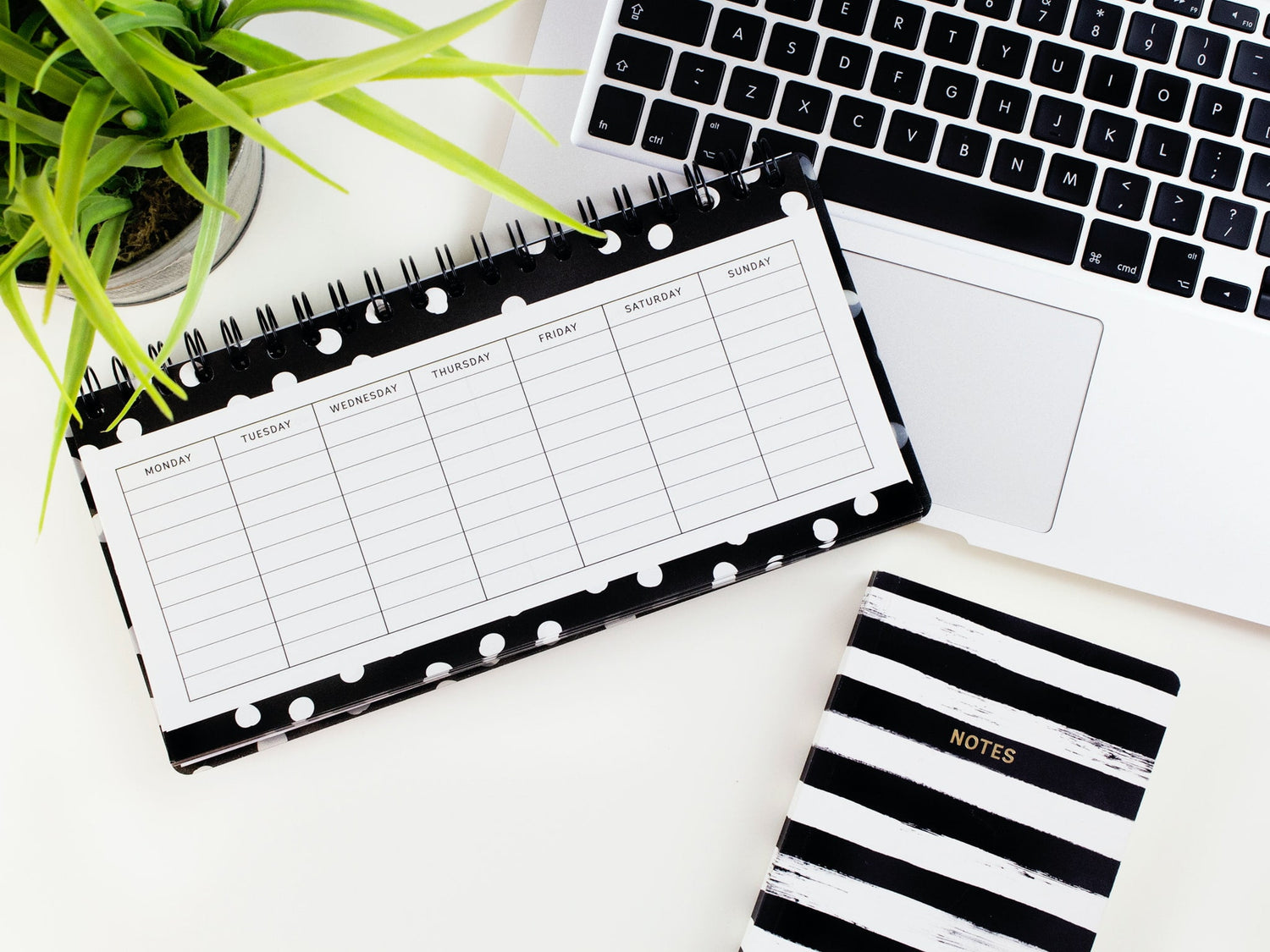Monday morning. Even thought our normal routines are far from normal at the moment that Monday morning can still bring a sense of panic at all the things that need to be done today or in the coming week. And now there is home schooling, the constant fear of illness and the fact that we are separated from loved ones to contend with as well.
When it comes to getting stuff done, trying to clear your head and keep things simple is really important for how we feel. It is very easy to feel overwhelmed with tasks at the best of times and now everything is surrounded with a covid cloud it might feel even harder.
How can we help ourselves with that sinking feeling of all that we want to get done but maybe feel we can’t?
These thoughts in themselves hold us back from getting the tasks done. These negative thoughts act as a thought blocker, a task blocker and a weight us down.
Our brain is very clever in that it self perpetuates how we think. So if we feel stressed or panicked and that we can’t get stuff done, our brain and our thoughts will reinforce this.
How can we get rid of these thoughts, quickly and in a way that helps us focus on what we want to achieve? Simple ideas include-
- Write it down. I am a massive fan of a list. Everything, all the things that we are thinking we need to do from the biggest task to the smallest. (I write down even when I need to post a letter!). This gives a clear goal of what we need to get done.
- If there is a bigger job or project on that list take this as a task all on its own. This may need a sublist or my personal favourite, a spider diagram.
- Single task- multitasking is unproductive, stressful and not good for brain health. One task at a time. If someone isn’t there when you call them and you have to move on to the next one that’s ok, think of it as a task on pause
- Review your list as the day goes on- Clear things off your list as you do them or maybe decide they don’t need to be done. Tick the box, score them off, delete them. Priorities will change, someone might do it for your or it might become clear that you don’t need to get that task done at this particular moment as the day goes on.
- Take a break- get up, get active and if you can get outside. Even of the midst of a super stressful and busy day taking a few minutes to break, switch off and clear our minds can make us calmer, more productive and feel more positive
- One day at a time- this has never been more important than right now. We can only see what is happening right at this moment and that is all we can manage. So the same is for lists and jobs to be done. There will be always be another list to be made - maybe tomorrow or next week -so praise yourself for what you have done and move the things onto tomorrow’s list that are still outstanding.
- Relax- as a junior doctor on the wards, making lists like these as I traipsed around after the senior doctors on the ward rounds was the bread and butter of my mornings work and the remainder of the shift was usually spent trying to tick everything off. But of course things went sideways pretty quickly if a patient was sick, someone new arrived on the ward or of course if a colleague asked your for help. Not getting though the ward round list could feel very stressful and with a fear that you might get into trouble. Some days went better than others! As time went on I learned that things change and if you don’t manage to get through everything that is ok. You can only do what you can
Whilst this approach can help with productivity, it can also help with a sense of calmness and routine which can change your brains ways of panicky negative self talk over time.
Simple changes can help us feel better.
Keep well
Dr Clara Russell









